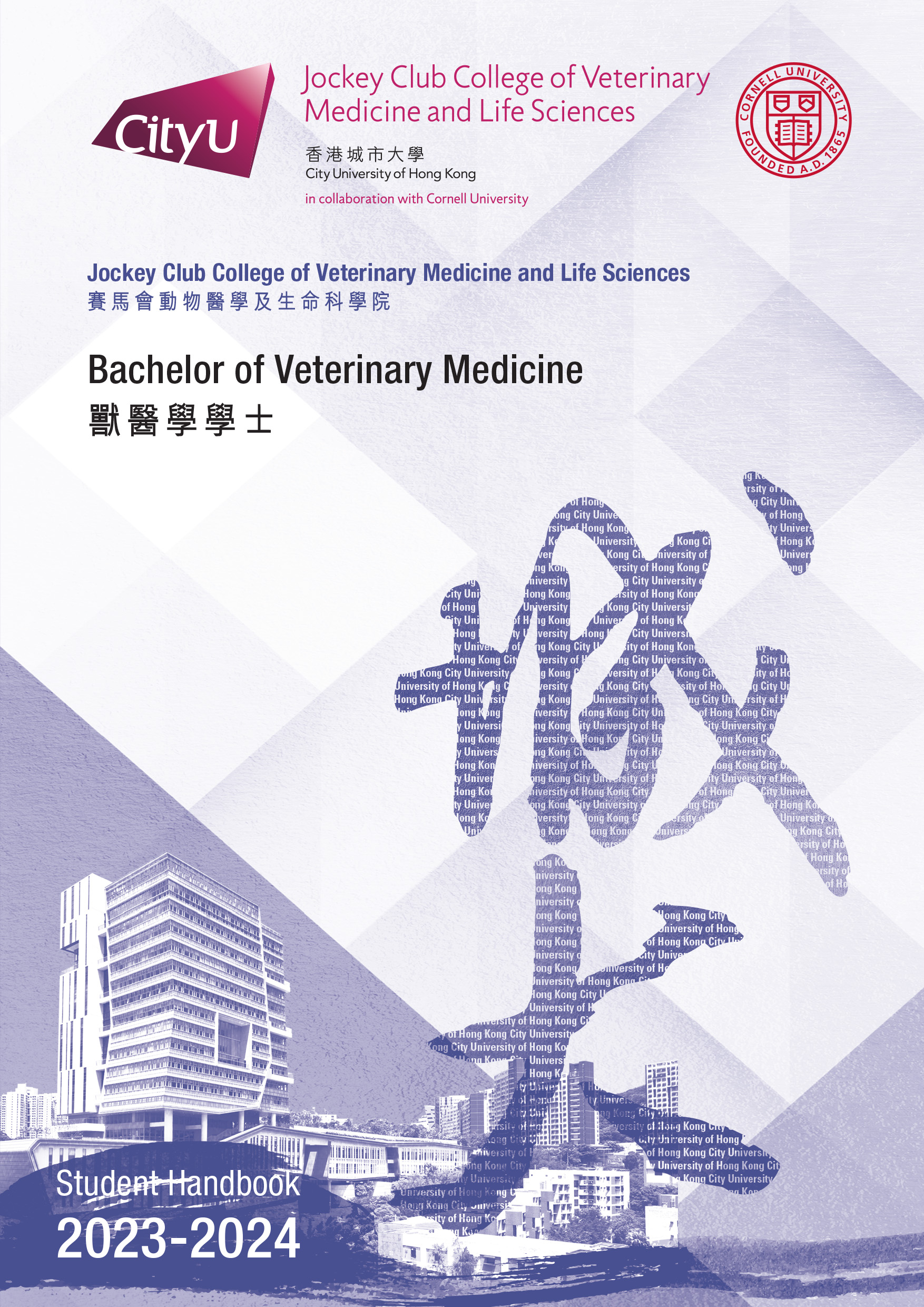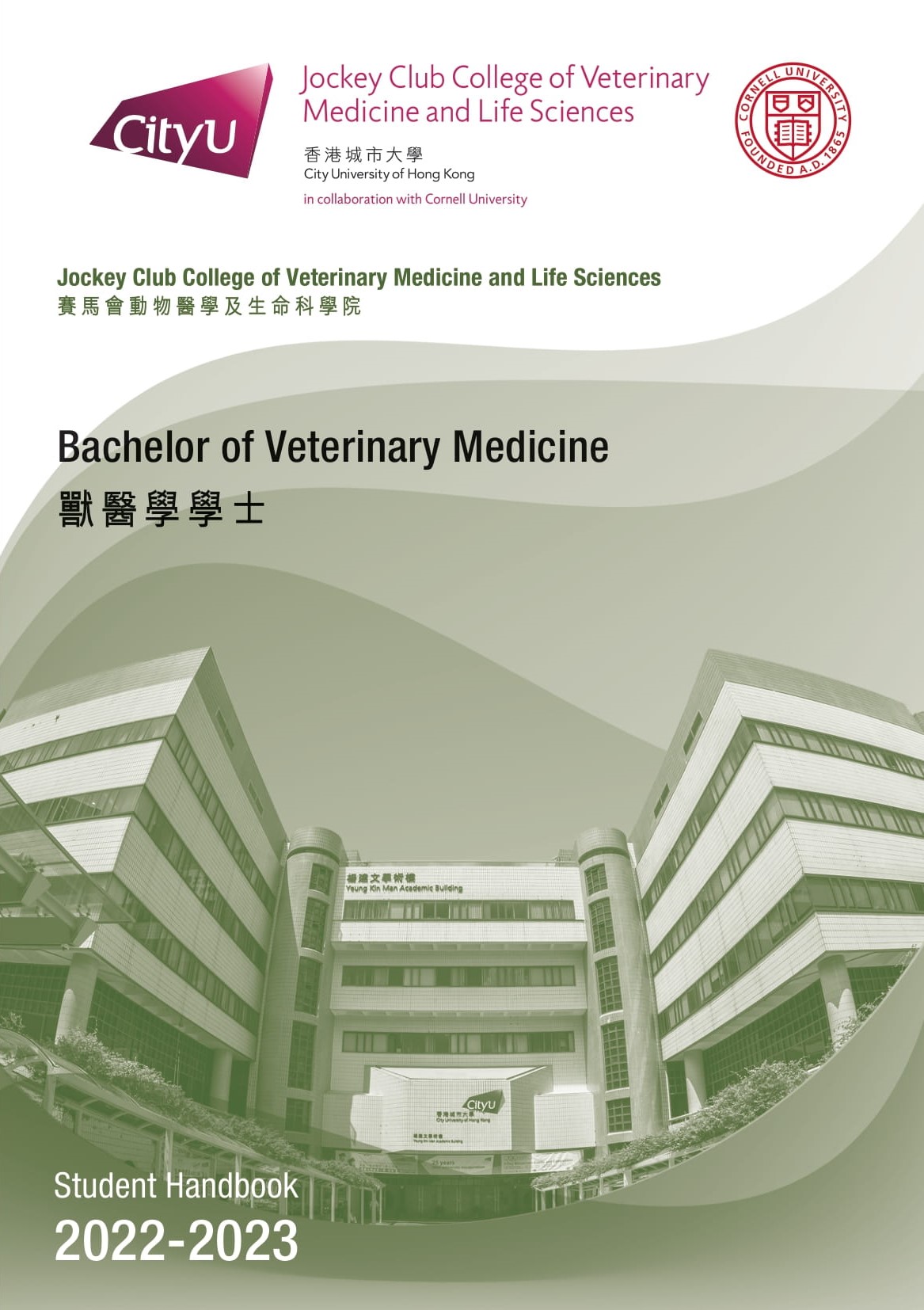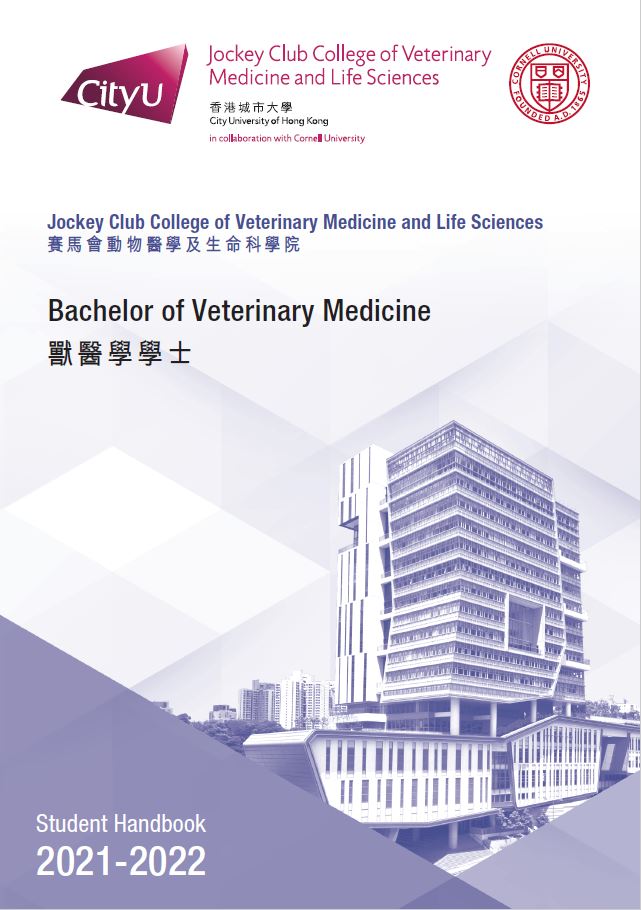International Programme Accreditation
The BVM Programme has been internationally accredited by both the Australasian Veterinary Boards Council (AVBC) and the Royal College of Veterinary Surgeons (RCVS). Our BVM Programme is the only programme in Asia to be directly accredited by AVBC and RCVS
With dual accreditation of our BVM Programme by AVBC and RCVS, our graduates can register to practise in Hong Kong, the United Kingdom, Australia and New Zealand or any other country recognising one of these bodies, without the need to sit further examinations.
Registration
With dual accreditation of our BVM Programme by RCVS and AVBC, our graduates can register to practise in Hong Kong, the United Kingdom, Australia and New Zealand, without the need to sit further examinations.
Individual graduates need to fulfil the registration requirements of relevant professional bodies, which can include certain minimum fitness to practise standards relating to medical or physical conditions, conduct or competence issues, disciplinary findings, convictions, language skills, etc.
Information about registering as a veterinary surgeon in Hong Kong is available on the website of the Veterinary Surgeons Board of Hong Kong (VSBHK): https://vsbhk.org.hk.
China's Ministry of Agriculture and Rural Affairs will also allow veterinary graduates who are Chinese nationals and are registered in Hong Kong or Macau to sit the Chinese National Veterinary Licensing Examination.
Fitness to Practise
Students are expected to follow the broad principles of fitness to practise as set out in the BVM Fitness to Practise Guide: [click here]
The Dean of the JCC may be required to inform the VSBHK of any substantiated case of major misconduct by a BVM student at the time of the student's graduation.
Programme-related
A: Veterinary medicine students should have empathy for animals and a willingness to be advocates for their improved health and welfare. They should have a passion for learning about the biological sciences, including a strong interest in health and disease. They should have good communication and problem-solving skills, a high level of academic ability and strong motivation to complete a six-year programme with a high workload.
A: Most semesters comprise around 21 credit units, where each credit unit typically represents about one hour of scheduled contact time plus approximately one hour of out-of-class study per week. So, studying for a BVM requires a similar time commitment as a full-time job.
A: Applications from transfer students who have completed part of or a whole degree course will be considered on a case-by-case basis. However, credit transfer is only very rarely possible.
A: Mature age students are eligible and will be considered on a case-by-case basis. All applicants must demonstrate competency in English, Mathematics, Biology and Chemistry to levels equivalent to those specified for the other modes of entry.
A: Yes, in subsequent years.
A: In order to graduate, BVM students must achieve basic competence in clinical studies of a wide variety of companion animal, production animal and exotic animal species. This is a requirement for accreditation with the Australasian Veterinary Boards Council (AVBC), the Royal College of Veterinary Surgeons (RCVS) and the American Veterinary Medical Association (AVMA). Therefore, common to all internationally accredited veterinary schools. BVM students will be omnicompetent when they graduate. After graduation, they may choose to specialise in one type of animal (e.g., cats) or one type of discipline (e.g., surgery). This typically involves completing a one-year internship in a veterinary teaching hospital or specialist referral centre, followed by completion of a three-year residency training programme in the discipline, and successful completion of Board Examinations with the Specialty College, for example, the American College of Veterinary Internal Medicine (ACVIM).
A: The characteristics of the spread of diseases through animal populations are studied using mathematical modelling. Secondary-school mathematics is required to understand how mathematical modelling works. Competency in mathematics is also required to understand other areas of veterinary medicine, e.g., diagnostic imaging, physiology, pharmacology.
A: English is the official language of CityU. The BVM Programme is wholly taught in English. In addition, high standards of fluency and literacy in English are required by the international veterinary accrediting authorities.
A: Veterinary nursing is a profession in its own right, and the contents of subjects studied to become a veterinary nurse do not overlap sufficiently closely with the studies to become a vet. Thus, credit transfers from a veterinary nursing programme are not generally possible.
Job-related
A: Graduating with a degree in veterinary medicine opens up a wide variety of career paths. Veterinarians have high-level problem-solving skills, and these skills are transferable to many different fields.
Most veterinarians choose to initially work in private veterinary practice as general practitioners, focusing on small companion animals, equine practice, exotic animals/wildlife and/or production animals. After graduation, veterinarians may choose to become business owners of a practice, or they may seek further training and qualifications to become a specialist. There are multiple and diverse fields of specialisation. Examples include Surgery (Small or Large Animal), Medicine (Feline, Small Animal or Equine), Pathology (Anatomic or Clinical), Epidemiology, Anaesthesia, Ophthalmology, Neurology, Cardiology, Dermatology, Nutrition, Emergency and Critical Care, to name a few.
Other career opportunities for veterinarians in the private/industry sector include veterinary technical, research, management and advisory positions for corporate veterinary entities such as veterinary pharmaceutical, agricultural, nutrition companies or in corporate practice.
A career in veterinary research is another option for veterinary graduates who are well placed to pursue Masters or PhD degrees in a wide range of fields, including veterinary and/or human medicine, one health, public health microbiology, molecular biology, epidemiology and many more.
Veterinary Education is another field where career opportunities include teaching undergraduate students and/or post-graduate students at an educational institution.
Veterinarians also hold positions in government organisations, often working in the prevention and control of infectious and parasitic diseases and food safety, and non-government organisations, such as animal shelters or wildlife conservation.
It is also possible to have multiple different careers during one’s working lifetime. For example, a graduate might begin in small animal practice, then later move into industry or pursue further study as a specialist or attain a post-graduate research degree.
A: Yes. Many vets, particularly those with young children, prefer to work part-time.
A: Most veterinary practices have consultation hours in the evenings and on weekends. Also, emergencies often occur outside of regular business hours. That means that some of the vets in the practice have to be rostered for out-of-hours work. Government vets may also have to deal with out-of-hours emergencies. Typically, newer graduates are often expected to participate in out-of-hours work rosters. However, some larger veterinary establishments have dedicated after-hours facilities and dedicated staff working out-of-hours.





